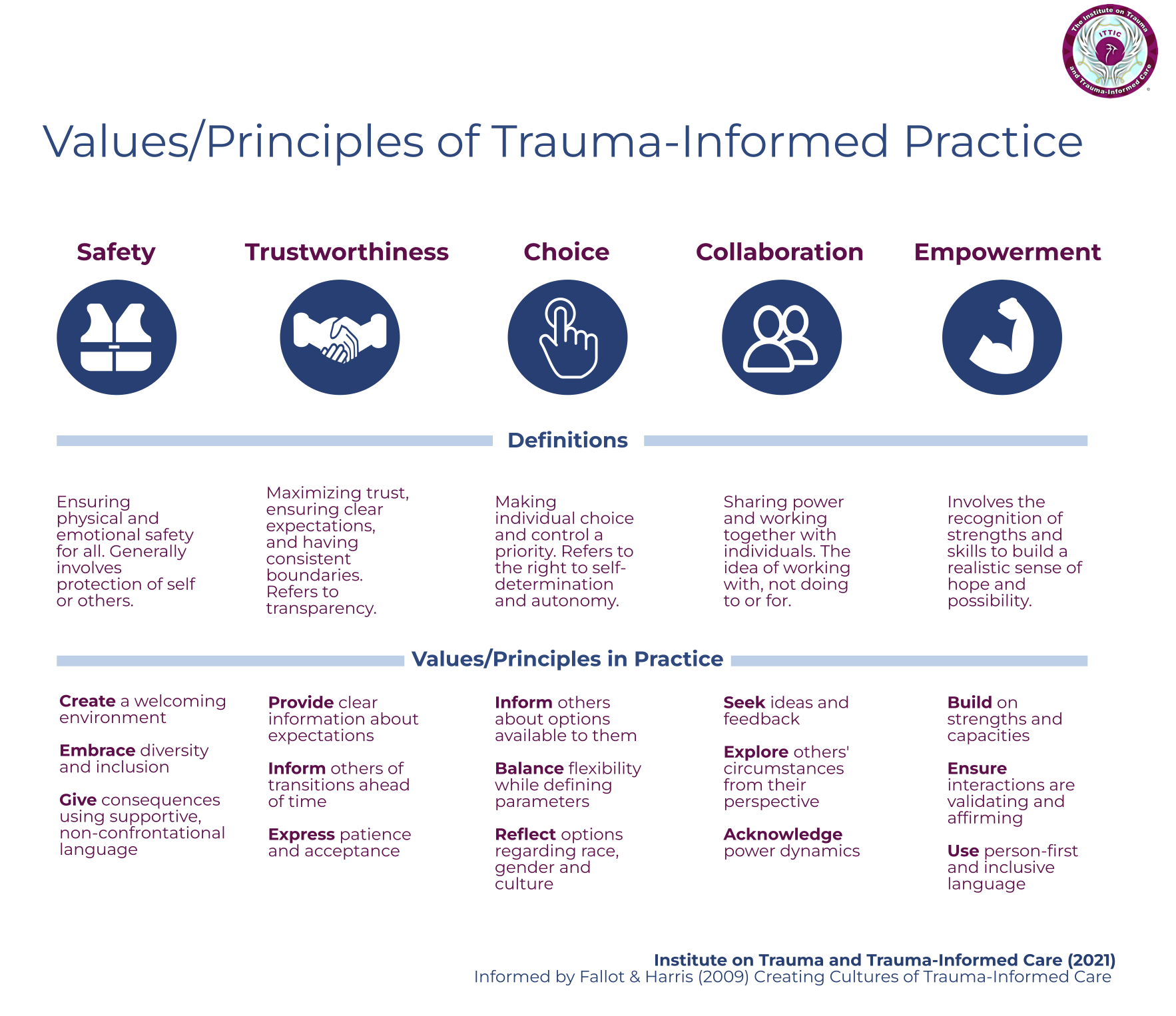Trauma-Informed Care
Trauma of all sorts — physical, emotional or sexual — is known to be both a cause and a result of homelessness. This means that staff and volunteers working with people experiencing homelessness need to create and implement trauma-informed services in order to provide the best possible care.
The following collection of resources can be applied to programs supporting youth and adults in Housing First and Prevention programs.

Five principles of trauma-informed care. University of Buffalo, School of Social Work.

Responses